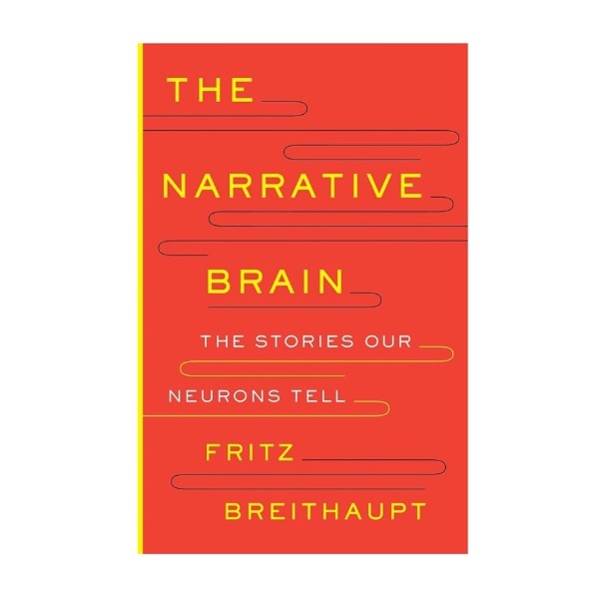 Is new media finally taking over from the old? The prominent American blog The Huffington Post recently declared its intention to "fill the gap" left by the moribundity (and occasionally bankruptcy) of the mainstream press, and now has paid staff members. The question is, though, can new media maintain the same quality of writing found in old media? Do the notoriously short attention spans of the internet spell the end of serious writing, or might it actually mean better writing?
Is new media finally taking over from the old? The prominent American blog The Huffington Post recently declared its intention to "fill the gap" left by the moribundity (and occasionally bankruptcy) of the mainstream press, and now has paid staff members. The question is, though, can new media maintain the same quality of writing found in old media? Do the notoriously short attention spans of the internet spell the end of serious writing, or might it actually mean better writing?
Some are less than sanguine about the effect of the internet on old media. In the last issue of New Humanist, Professor Stephen Howe took issue with two recent books, Richard Seymour's The Liberal Defence of Murder and Jonah Goldberg's Liberal Fascism. These two "preposterous" books are apparently united by an "infinitely capacious definition" of liberalism, a doctrine Howe is eager to defend. Yet the main problem for him wasn't so much their arguments as the way they were put across. Seymour is a prominent blogger at Lenin's Tomb, and Goldberg writes for the National Review website and Bloggingheads.tv, although he is far more a product of old media. Regardless, for Howe, their writing style and the alleged deficiencies of their books are irretrievably corrupted by their roots in blogging. He writes disdainfully of "their shared inability . . . to ask themselves whether their thoughts will be worth reading next week or next year, or even whether what they wrote today is consistent with yesterday's screed." Bloggers are apparently incapable of "self-editing", a cardinal sin where books are concerned - objects which are "supposed to have enduring value, however slight". (Regular internet users might be somewhat surprised that the works of Jeffrey Archer have more enduring value than the best blogs.)
At this point I should declare an interest, or two interests. First of all, I favourably reviewed Richard Seymour's book in the New Statesman, incurring the ire of the blog Harry's Place, which made a series of unsubstantiated and subsequently retracted allegations about my political allegiances. I'm very familiar with the frequently hysterical pitch of internet debate, and how it isn't necessarily conducive to reason, or even to getting your facts right. That's because I'm a blogger myself, and worse than that - a blogger with a book, Militant Modernism, just published. Since 2005 I have been blogging about the politics of aesthetics, urbanism and architecture, which are also the main preoccupations of Militant Modernism, a short cultural history of left-wing politics in design and film.
Unlike Seymour - whose book, irrespective of Howe's claims of its internet provenance, is made up entirely of newly written material, none of which appeared previously on his blog - I have reused some previously blogged writing in my book. So I can agree with at least one of Howe's points, that the disciplines of writing a book and of writing a blog are very different, and involve "necessary changes in genre". It took months of rewriting to tie former blog posts in with original material or to properly reference half-remembered quotes. But I detect something more than mere questions of genre in his essay. Lying behind Howe's lofty dismissal of bloggers is a deep suspicion of new media. This comes out clearly at the end of his piece, where he fantasises about locking his "two miscreants" in a room with the collected works of JS Mill, "without access to email, phone, Web, TV or radio". Cut off from all that awful new media and technology, then presumably they'd be able to write properly.
Many of his points are not nearly so exclusive to blogs as he seems to think. The accusations of rhetorical exaggeration, disposability and speed have been thrown at print journalism for donkeys' years, yet it would seem preposterous to accuse books by, say, James Cameron or Martha Gellhorn of a lack of historical value. But like blogs, the columns, feuilletons and reportage of these journalists were not written with posterity in mind, but quickly, for immediacy and for particular political effect. It is actually for these reasons that many of the leftist Modernists of the interwar years whom I discuss in Militant Modernism considered newspapers more important as a model than the peer-reviewed article or the heavy monograph.
A linked group of German and Soviet writers, critics and artists such as Sergei Tretiakov, Osip Brik, Walter Benjamin and Bertolt Brecht, in mass-market newspapers and in their own journals, pioneered the theoretical investigation and use of then new media such as film, radio and the mass-circulation press. They aimed to use these technological "apparatuses" to create a directly democratic media, and would have disdained Howe's talk of "enduring value" and "valuable shelf space" as hangovers from an obsolete idea of what writing should be. A succinct summation of their ideas is one of Brecht's little "Herr Keuner" parables. Read it, and substitute "newspapers" for "blogs": "Mr Keuner ran into Mr Muddle, a great fighter against newspapers. 'I am a great opponent of newspapers. I don't want any newspapers', said Mr Muddle. Mr Keuner said 'I am a greater opponent of newspapers. I want better newspapers.'"
If newspapers are a means to disorder, then they are also a means to achieving order. It is precisely people like Mr Muddle who through their dissatisfaction demonstrate the value of newspapers. Mr Muddle thinks he is concerned with the worthlessness of today's newspapers. In fact he is concerned with their worth tomorrow: "Mr Muddle thought highly of man and did not believe that newspapers could be made better, whereas Mr Keuner did not think very highly of man but did think that newspapers could be made better. 'Everything can be made better', said Mr Keuner, 'except man.'"
As with the internet today, film and radio were largely regarded as flimsy, disposable, immediate, tendentious. Yet the importance of new media, for the German and Soviet theorists, was in this very immediacy and accessibility. This argument was made through contrasts with old media, such as in Benjamin's juxtaposition of "Theatre and Radio" in 1932, where he discussed the latter's ability to reach a greater audience than even the most populist theatre: "not only a more advanced technical stage, but also one in which technology is more evident. Unlike the theatre, it does not have a classical age behind it. The masses it grips are much larger; above all, the material elements on which its apparatus is based are closely intertwined with the interests of its audience." By this, Benjamin meant that the radio, in work and at home, insinuated itself in everyday life in a way the book never could, much as the internet is the recourse of choice to every bored office worker.
Benjamin's theories were directly inspired by Russian theorist Sergei Tretiakov's "Operative writing", an approach which used montage to combine sociology, photography and economics in short, critical writing; and the linked experiments like the "Two-Way Newspaper", an abortive experiment in factories where workers were encouraged to write, and writers encouraged to engage with production. The point was to dissociate writing from the need to go through an established professional press. Similarly, Brecht wrote in 1927 that the new technological forms had a unique potential for mass access and communication. In "The Radio as a Communications Apparatus" he wrote that radio "must transform the reports of those who govern into responses to the questions of those governed. Radio must make exchange possible." Blogs are a successful example of this exchange. No old-boy network is necessary to start a blog. Where you went to school, how you come across in interview, whom you know, all are basically irrelevant. And response is easy - you can comment in the comments boxes, you can start your own.
The media theorists of the 1920s argued that there must be a redistribution of "apparatuses" to producers rather than owners. "I have seen with distress", wrote Brecht, "how the Egyptian pyramids and the Indian Rajahs' palaces move to film studios in order to be filmed by an apparatus that a man can slip comfortably into his backpack." These attempts to democratise media floundered in the face of political and technological limitations, but they have an inadvertent afterlife on the internet. What is a blog if not an on-screen version of Tretiakov's Two-Way Newspaper? A radio apparatus or a film camera in 1927 was essentially ungainly and expensive. Now, a huge quantity of people have some kind of means of cultural production at their fingertips, whether via their cameraphones, cheap digital cameras or, most of all, blogs.
The distribution networks of new media are owned by multinationals, just like print media, and the majority of blogs are inconsequential. Still, there is a groundswell of writing on the internet which puts the conformity, smugness and commercialism of print media to shame. Writers like Mark Fisher, Nina Power, Geoff Manaugh or - oh, yes - Richard Seymour could only have developed on the internet, as a space where they could develop their talents and obsessions outside professional journalism's shrill, shallow bubble. No doubt, blogs have to be heavily adapted to work in print. Some bloggers often seem constricted by old media's house styles and compulsory topicality. Remainder bookshops abound with unsuccessful blog-books. And if you want to earn a living from writing, old media is still a far, far better bet, with even The Huffington Post rarely paying its contributors. Nonetheless, in a context of declining social mobility and ubiquitous networking, blogs are one of the few places where anyone can do it, easily and cheaply, where genuinely unique voices can develop. What seems to really be motivating many attacks on bloggers isn't just fear of new technology, but fear of the competition.

